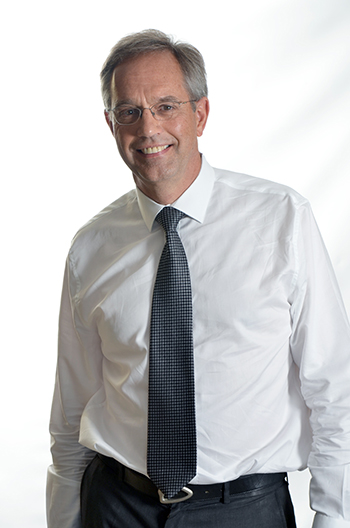Latest News Archive
Please select Category, Year, and then Month to display items
09 November 2018
|
Story Charlene Stanley
|
Photo Charlene Stanley
 Dr Tseliso Ntili, HOD of the Free State Department of Water and Sanitation, warns that pollution caused by mismanagement of municipal water-treatment works puts severe pressure on the province’s water security.
Dr Tseliso Ntili, HOD of the Free State Department of Water and Sanitation, warns that pollution caused by mismanagement of municipal water-treatment works puts severe pressure on the province’s water security.
“Despite our water challenges, Bloemfontein will never become a second Cape Town.” This firm assurance was given by Dr Tseliso Ntili, HOD of the Free State Department of Water and Sanitation, during his presentation at the recent regional seminar of the Faculty of Law’s Environmental Law Association.
The theme of the seminar was Water Quality and Water Security in Bloemfontein and was attended by staff and students from the Faculty of Law and the Faculty of Natural and Agricultural Sciences, as well as relevant role players from private, business, and government sectors.
Not enough water for city’s needs
Water restrictions in some form do seem to remain part of our future landscape though, as Dr Ntsili explained that the city’s current water yield of 218 megalitres per day still fell short of the demand of 259 megalitres per day.
Pollution and mismanagement at municipal level
He pointed out that a big cause for concern was that 75% of the Free State’s waste-water treatment works were dysfunctional. Housekeeping and security at these plants are often severely neglected. Yet, it is difficult for the Department of Water and Sanitation to act against offending municipalities.
“In intra-governmental disputes, the courts must be satisfied that organs of state have taken all reasonable steps to settle contentions – which can be a time-consuming process,” he explained.
Dr Ntsili said that the Caledon River System’s dwindling water levels due to low rainfall and siltation was also a concern, but that plans were underway to supplement the water supply to Bloemfontein via the Gariep Dam by 2026.
However, he warned that poor water management could drastically affect these long-term plans.
“If we can’t manage pollution, the cost will be high. Water security will be challenged, and we will have water shortages – not because of drought, but because of negligence.”
Meet our Council: Marius Swart – a Councillor with deep roots in the UFS
2017-07-12

Marius Swart, Alumni election on the UFS Council.
Photo: Stephen Collett
Marius Swart, a Kovsie alumnus, is an Alumni election on the University Council. Not only is he a Kovsie alumnus, but all four of his siblings and their spouses are Kovsie alumni, as well as all three his children.
Interest in future decisions at the UFS
He is currently practicing as cardiothoracic surgeon at Mediclinic in Bloemfontein, but has always been involved with the Faculty of Health Sciences at the university. He spent eight years as consultant in the Department of Cardiothoracic Surgery and recently became a registered student again when he enrolled for an interdisciplinary PhD. He is currently also supervisor for the research projects of undergraduate medical students.
Thus, Marius no doubt has a substantial interest in the issues and future decisions at the UFS.
Guard against retroformation
"Higher education is a challenging environment and expectations about excellence and human development are being tested. Transformation is on everybody’s lips, but we have to guard against what I would call retroformation – moving back to old regimes and new forms of exclusion," he says.
Marius is excited to begin his term with a new Rector and Vice-Chancellor. He realises that many challenges awaits him as councillor on the way forward, but he is ready to pull his weight in Council.
"My own daughter is involved in the challenges students are experiencing on a daily basis, and my wife is supporting a first-generation rural student. The university should be sensitive to these students. Empowering them can bring change to communities."
His interests are varied and it is clear that he has a vision for a better world.